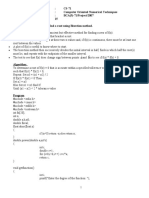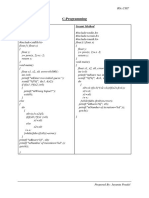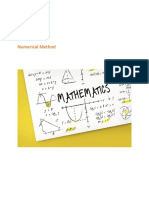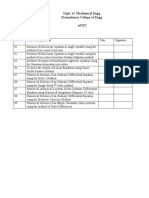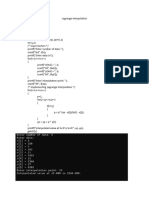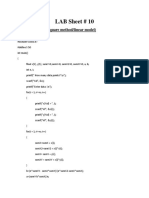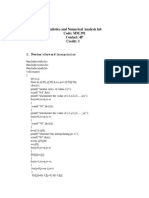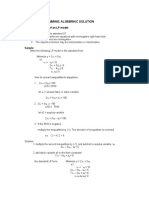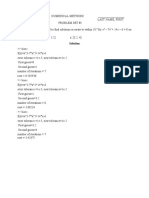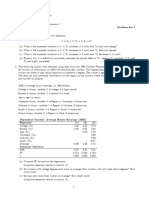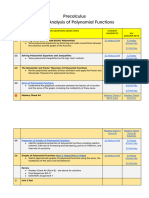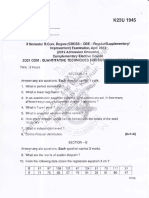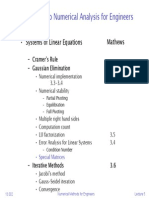0% found this document useful (0 votes)
13 views26 pagesScientific Computing
The document contains several programming assignments related to numerical methods, including Newton-Raphson, Gauss Elimination, Gauss Seidel, successive approximation, Runge-Kutta, Lagrange interpolation, Trapezoidal rule, and an application for rocket motion. Each assignment includes code snippets in C, along with example outputs demonstrating the functionality of the programs. The assignments cover solving equations, finding roots, and estimating integrals using various numerical techniques.
Uploaded by
sreshthamuk96Copyright
© © All Rights Reserved
We take content rights seriously. If you suspect this is your content, claim it here.
Available Formats
Download as DOCX, PDF, TXT or read online on Scribd
0% found this document useful (0 votes)
13 views26 pagesScientific Computing
The document contains several programming assignments related to numerical methods, including Newton-Raphson, Gauss Elimination, Gauss Seidel, successive approximation, Runge-Kutta, Lagrange interpolation, Trapezoidal rule, and an application for rocket motion. Each assignment includes code snippets in C, along with example outputs demonstrating the functionality of the programs. The assignments cover solving equations, finding roots, and estimating integrals using various numerical techniques.
Uploaded by
sreshthamuk96Copyright
© © All Rights Reserved
We take content rights seriously. If you suspect this is your content, claim it here.
Available Formats
Download as DOCX, PDF, TXT or read online on Scribd
/ 26














